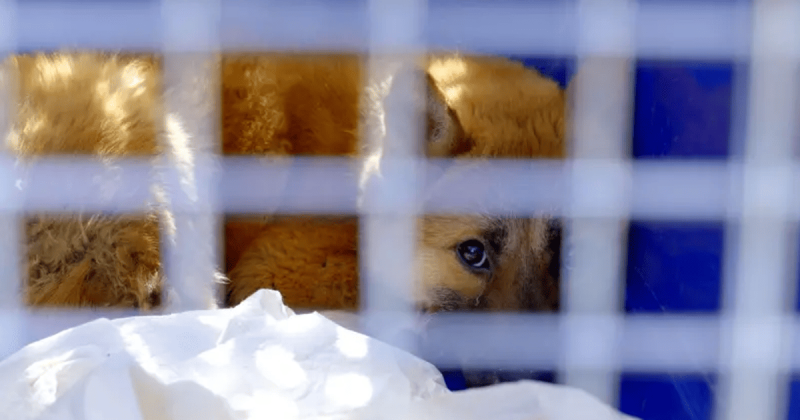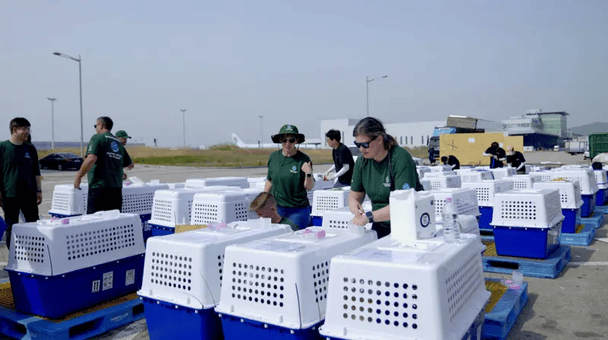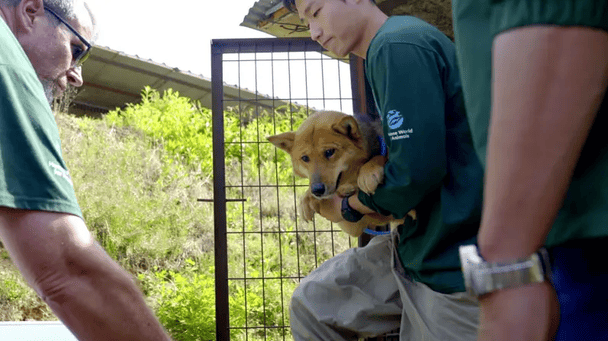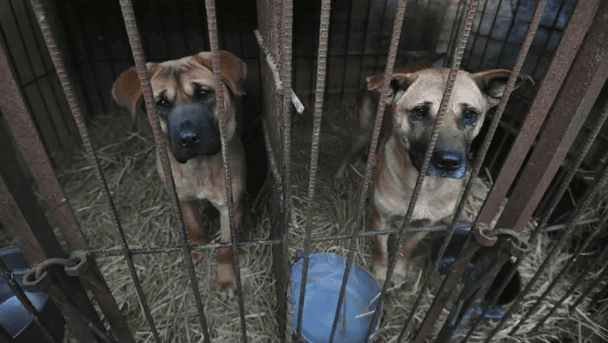After South Korea's historic ban on dog meat consumption, half a million dogs have no future. The word euthanasia is increasingly being heard.

After South Korea passed a law banning the sale of dog meat, the country found itself in a moral dilemma: half a million animals kept on farms for consumption were left virtually unneeded. Now, instead of being saved, they face mass euthanasia.
BBC Ukraine writes about this.
Pastor Ju Yong-bong breeds dogs when he's not preaching. But after a law was passed that would phase out the dog meat business by February 2027, his business is at a standstill. “We've been trying to sell dogs since last summer, but there are no buyers,” he says.
Traders are refusing to buy, shelters are overcrowded, and the government and animal rights groups have no clear plan for what to do with the half-million animals. Although farmers have been given three years to wind down their operations, many believe that the term is unrealistic.
One farmer, who is wary of publicity and asked not to be named, has 1,500 dogs. “I've already invested everything I had, and now no one even wants to take them,” he says.

Even those who previously advocated for the ban admit that the crisis was underestimated. “The law has been passed, but there has still been no frank discussion about what to do with the abandoned animals,” explains Lee Sang-kyung of Humane World for Animals Korea (Hwak).
The government's official position is that dogs that farmers refuse to keep should go to shelters. But most of these facilities are already overcrowded. In addition, the large breeds popular with farmers are considered less attractive for adoption in urbanized societies due to their weight and reputation. The stigma surrounding dogs from meat farms also complicates adoption: potential owners fear disease and aggression.
Complicating the issue is the fact that many of these dogs are purebred or mixed Tosa Inu, which are officially classified as “dangerous” and require a special permit to keep. This creates a “perfect storm” of animals rescued from butchers being on the verge of being euthanized.
“We fought for this law, but no one wants to take responsibility for the consequences,” says one farmer. Animal rights groups confirm that it is impossible to save all animals. “If some of them become 'abandoned,' euthanasia will be inevitable,” admits Cho Hee-Kyung of the Korean Animal Welfare Association.

At the same time, the government says it will invest about $4.3 million annually to expand shelters and support private facilities. It also offers compensation of up to $450 per dog for farmers who retire early.
However, this does not solve the main problem – too many animals and a lack of clear infrastructure for their care. Since 2015, Hwak has placed fewer than three thousand dogs – a tiny fraction of the scale of the current crisis.
Experts believe that it is necessary to clearly define what to do with abandoned animals. “You can't just ban it and forget about it. Adoption, euthanasia – everything should be honestly discussed,” says Chun Myung-soon from Seoul National University.
Some try to save the dogs by sending them abroad – to Canada, the US or the UK. In 2023, a team from Hwak rescued 200 animals from a farm in the city of Asan. Their owner, Yang Jeong-to, was amazed by the compassion of the volunteers. “They treated the animals like people. It made me think,” he admits.

However, even he is against a complete ban: “If dogs are not allowed, then why are pigs or chickens allowed? What is the difference?”
Ms. Jeong of Hwak counters that dog meat is more dangerous from a hygiene standpoint because it is not part of the controlled meat system. And while consumption in South Korea is declining — only 8% of respondents in 2024 admitted to eating dog meat in the past year — it is still a long way from stopping the practice entirely.
So far, 623 of more than 1,500 dog farms have closed. But thousands of animals remain hostages of the new humane order – without meat, but also without a chance to live.

